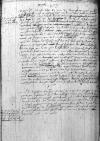Unser bothe, den wir zu ⌊Braunsberg⌋ negst an koniglichen hoff schickten, ist vorgestrigenn tage wider ann uns gekomenn bey demm uns ⌊koniglicher majestet⌋ / ewrenthalben und der pension, / die wir vor euch uff ⌊Marienburg⌋ gebeten, vortrostlich geantwurt, das ir majestet den hern hie im lande ⌊schaczmeisterr⌋ hab zu sich gefurdert, durch den / wil ir majestet unser vorbitt nochkomenn. / Derwegenn wir gutter hoffnung sein, / weil wir ouch gemeltem hern ⌊schaczmeister⌋ derhalbenn / vor seinemm auszcog (: wie ir im negsten von uns vorstandenn :) vor euch habenn geschribenn, / der zuvorsicht, werde sich hir inne gen uns wilferig beweisenn etc.
Wie es in ⌊Hungernn⌋ im abczoge des ⌊Turken⌋ / und bey ⌊Romischer kayserlicher majestet⌋ im zcoge in ⌊Francreich⌋ / ergangenn, / ⌊Paris⌋ belegert, / den ⌊turkischen konig⌋ biss gen ⌊Leon⌋, / sein leczste houptstat an ⌊Sweicz⌋ stossend, / getribenn, / hab wir euch, / wie eim alten kriegmann, in beigelegten lateinischen zceitungen / nicht wollenn vorhaltenn, / die wirt euch der pfarrer gernn auslegenn. / Wan ir die gehort, / werdet ir sie unsermm official, hern ⌊Jorgen Donerr⌋, / nebenn unsermm ⌊⌋ an in zuschicken etc. Es sol uns ouch ein huchsshoupt und ein tonne danczker getrenks von unsermm svagerr, hernn ⌊Jorgen Scheffken⌋, an euch zukomenn, / das lost biss gen ⌊Wormenith⌋ wol vorwart / mit einemm, der gut acht daruff habe, / furenn und unsermm burgermeen do selbst befhelenn, / das ers dergleichenn mit den erstenn an uns losse bringenn. / Darann geschicht uns wolgefalner dienst. /
